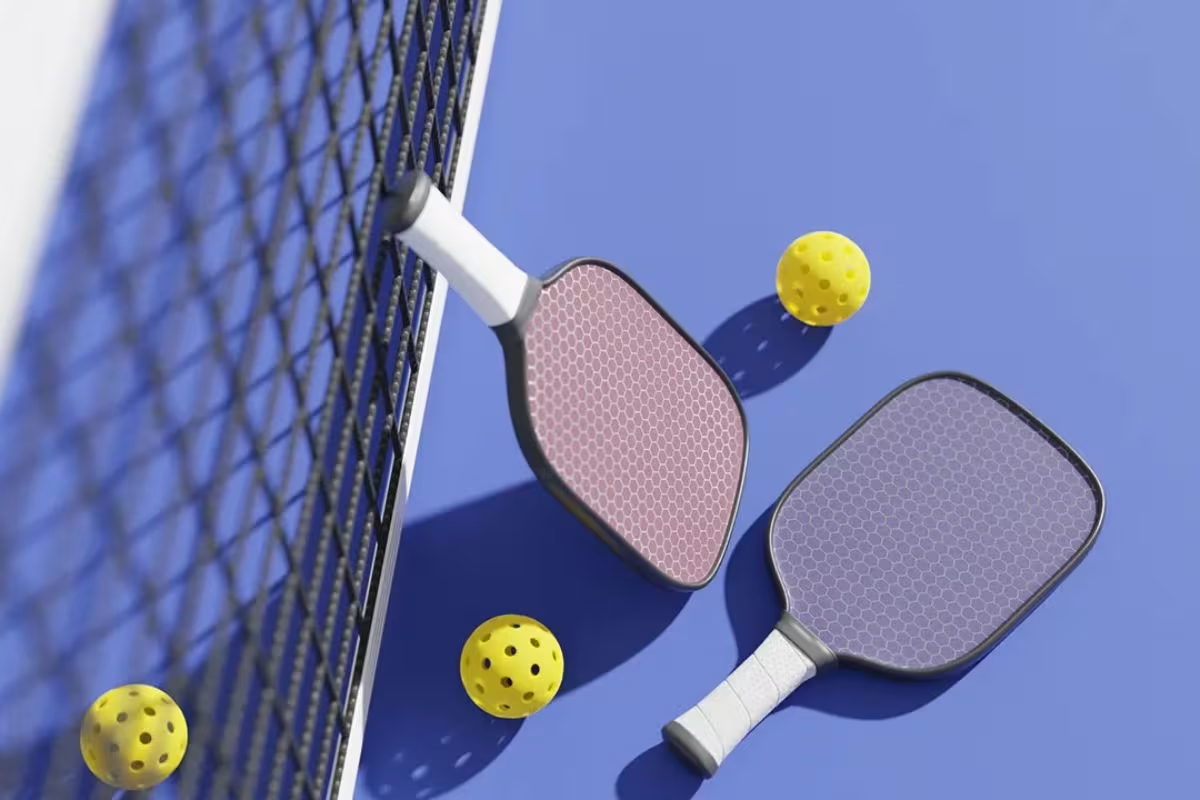Hidden Drama of Paddle Tapping and Unspoken Rule: It’s a dilemma facing pickleball players at all levels—from weekend warriors to top-tier pros. The question is simple but persistent: How often should you tap paddles with your doubles partner?
While there’s no official rulebook governing this small but significant gesture, it’s become a deeply embedded tradition in the sport. With pickleball rapidly growing across the U.S., discussions about etiquette, like paddle tapping, are becoming more prominent.
Post-Game Taps: A Universal Gesture
One thing seems clear—paddle tapping after a game is almost non-negotiable. Whether you’re leaving the court victorious or heading home after a tough loss, players meet at the net for the customary tap. Much like hockey players shaking hands after a hard-fought playoff series, it’s a gesture rooted in respect and sportsmanship.
Not tapping paddles after a match? That can leave you looking like a sore loser. “If you don’t tap, it’s a pretty negative look,” noted one experienced player. It’s a simple move that, at its core, says, “We gave it our best, no hard feelings.”

In-Game Taps: Encouragement or Annoyance?
But what about tapping paddles between points? This is where the debate really heats up.
Some pairs tap paddles after every point, regardless of the outcome. It’s a small but consistent show of solidarity—helping partners stay focused, boost morale, or even celebrate a particularly great shot. “I’m a paddle tapper after every point. Good or bad—I think there’s energy in it,” explained Daczar Erod.
On the other hand, there are duos who hardly tap paddles during play, preferring verbal affirmations. “I always say ‘Good shot!’ and leave it at that,” wrote Beth Koehler Spiroff on the Pickleball Facebook Forum. For some, it’s just a matter of personal preference or compatibility with a partner.
In casual, amateur settings, the protocol can vary widely. Some players, especially those unfamiliar with each other, skip tapping between points altogether, unsure whether the gesture will be well received. “There are certain partners I don’t tap paddles with because they don’t reach out first,” one player remarked. “I’m not making the first move.”
Polarizing Opinions in the Pickleball Community
This seemingly small aspect of the game has sparked heated debate online. The Pickleball Facebook Forum is a hotbed of opinions, with players divided on when and how often to tap.
“I can’t stand tapping paddles,” wrote Don Wesson. “Once at the end of the game, that’s it.” Meanwhile, others, like David Nocol, only tap after a win. “I prefer not to tap paddles unless I’m celebrating a victory,” he said.
At the pro level, paddle tapping is widespread, but some find the enthusiasm excessive. “Some players are so aggressive with their taps that I’m worried they’re going to break my paddle,” one player joked. Andrew Craton offered a unique solution: “Try a ghost tap instead—no need for actual contact.”
Then there’s the Christian Alshon approach—letting his teammate hit his hand with the paddle, a subtle but effective nod of acknowledgment during a high-stakes game.
Finding the Balance: Tap, but Don’t Overdo It
So, where does that leave us on the pickleball court? The general consensus seems to be that moderation is key. As Marilyn Haines, a well-known figure in the sport, said, “I tap paddles on really good points—not every point.”
If you’re unsure how your partner feels, it’s best to take a cautious approach. Reserve the enthusiastic taps for standout moments—a long rally, a sharp put-away down the middle—but don’t overdo it. A well-timed paddle tap can lift your partner’s spirits, but too much energy might break more than just your concentration.
In the end, as with so much in pickleball, the answer lies in communication. Whether it’s a quick tap after a point or a respectful nod at the net after a hard-fought game, the key is respecting your partner’s preferences. After all, it’s about more than just the taps—it’s about the connection on the court.
News in Brief: Hidden Drama of Paddle Tapping and Unspoken Rule
Paddle tapping in pickleball is a point of debate among players. While tapping paddles after a pickleball game is a nearly universal sign of sportsmanship, opinions differ when it comes to tapping between points. Some players, like Daczar Erod, tap paddles after every point for encouragement, while others, such as Don Wesson, find it unnecessary.
The pro circuit sees frequent paddle taps, though some prefer a subtler approach, like Christian Alshon’s hand-tap method. Ultimately, players should gauge their partner’s comfort level, reserving taps for key moments to foster connection without overdoing the gesture.
ALSO READ: The Hidden Secrets of 5.0 Pickleball Players: Mastering Dinks and Court Control


